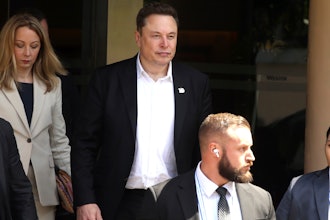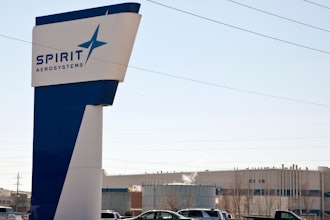By 2015, Muskegon will likely lose its largest taxpayer and about 120 jobs when Consumers Energy potentially shuts down the B.C. Cobb generating plant on Muskegon Lake.
Instead of waiting for the economic pain of closing the 64-year-old coal-fired power plant, the company and the community has begun to look at the future of the 300-acre site on Muskegon Lake at the outlet of the Muskegon River. Not only does the B.C. Cobb plant have electrical generating assets and grid connections that could still hold value but also the largest commercial dock on Muskegon Lake.
Consumers Energy has engaged Muskegon Area First, the local economic development agency, to begin an exploration of how the Consumers Energy dock could fit into Muskegon's plans on expanding port activities.
Muskegon Area First has contracted with Rockford-Berge of Grand Rapids — an international consortium of Rockford Construction Co. and Berge, a Spanish transportation and logistics company. Rockford-Berge has been working on transportation, logistics and operational issues with the commercial wind industry and other alternative energy developments.
The Rockford-Berge study of B.C. Cobb assets and their potential use if the power plant is shuttered is being paid for by Consumers Energy, Muskegon Area First President Ed Garner said. The $40,000 study's conclusions are expected to be made available to community leaders and the public by mid fall, Garner said.
"We will always be looking at reuse of such an industrial facility," Garner said of the future of the B.C. Cobb facility. "It has significant assets as they relate to our port."
Consumers Energy in 2008 invested $11 million in upgrading the B.C. Cobb plant docking facility to accommodate the huge 1,000-foot freighters that deliver coal to the power plant nearly once a week during the shipping season. Great Lakes Dock & Materials of Muskegon was the prime contractor on the construction of 1,800 feet of seawall, which replaced seawall that had been installed in the 1940s.
Consumers Energy already leases a portion of its Muskegon Lake frontage to Verplank Trucking, the Ferrysburg-based construction materials supplier. Even if the B.C. Cobb plant continues to operate, the new coal dock could be used for other needs in the port, according to Consumers Energy spokesman Dennis Marvin.
"Even though we are not ready to define the ultimate decision on the future of the B.C. Cobb plant, there is no reason from our view that the property can't be used," Marvin said. "It is the deepest-water location on Muskegon Lake and it could be incorporated into future commercial shipping."
The Rockford-Berge study will look at how the B.C. Cobb dock could serve multiple uses and what mixed-use could mean for such issues as security under federal Homeland Security regulations, Marvin said.
Muskegon companies and economic developers have two efforts under way in which the B.C. Cobb property could provide significant assistance, Garner said.
A group of West Michigan companies led by Rockford-Berge and L3 Combat Propulsion Systems in Muskegon - including Consumers Energy -- have formed the Michigan Wind Energy Consortium. The group is investigating the development of a Michigan Energy and Technology Center somewhere on the Muskegon Lake shoreline.
The B.C. Cobb plant could potentially be the location for the energy and technology center, Garner said.
Muskegon and Kent counties, meanwhile, are in the final stages of creating the West Michigan Economic Development Partnership under the Next Michigan initiative of the Michigan Economic Development Corp. Garner said that the B.C. Cobb plant could be a location where specific economic development incentives under the Next Michigan program could assist a specific industrial development.
"Although we may be losing a power plant, it leaves us with a great facility as a jumping off point for future development of our port facilities," Garner said. "Being good stewards of the community, Consumers understands how big of a blow losing the Cobb plant will mean for Muskegon. We all want to see how this can help our port development, which has become much more of a visible asset both around West Michigan and across the state."
Marvin said: "We are just trying to respond to community needs and how the Cobb facility can incorporate the overall vision of the Michigan Energy and Technology Center plans for Muskegon."
___
Information from: The Muskegon Chronicle, http://www.mlive.com/muskegon






















